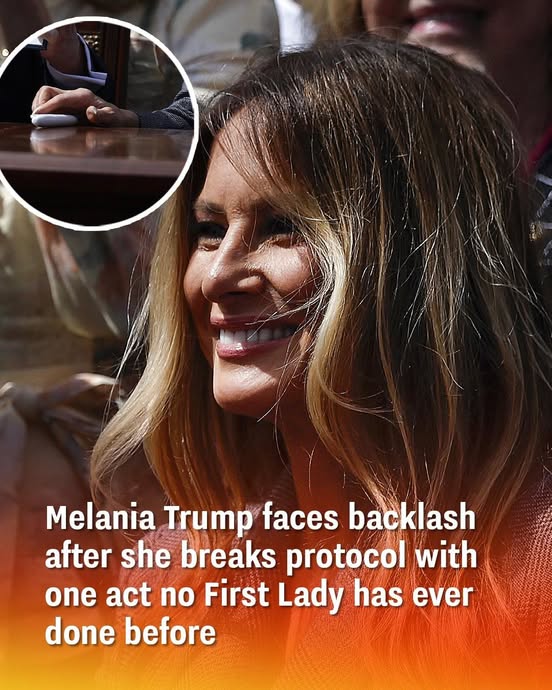On May 19, 2025, at a White House signing ceremony for the “Take It Down Act,” former First Lady Melania Trump did something no other First Lady had done before—she signed a piece of federal legislation. Though her signature held no legal weight, President Trump’s invitation for Melania to co-sign the bill created an instantly viral moment, sparking widespread debate over symbolism, protocol, and political influence.
The Law: A Landmark for Digital Protection
The Take It Down Act aims to combat non-consensual online content, including revenge porn and AI-generated deepfakes. It mandates removal of flagged material within 48 hours, imposes fines on noncompliant platforms, and enables victims to seek damages. Backed by bipartisan support, the law addresses growing concerns about digital exploitation and privacy violations.
Melania Trump had advocated privately for stronger protections, especially for children, lending her voice to briefings and public support. Her participation at the signing was the culmination of months of advocacy—both behind the scenes and now, dramatically, in the spotlight.
A Historic Gesture—and Controversial
Traditionally, First Ladies champion causes from the sidelines. Melania’s act broke that mold, leading to applause from supporters who saw it as a bold statement on child protection, and criticism from legal scholars who warned it blurred lines between public service and ceremonial spectacle.
While some praised the moment for raising awareness, others called it unconstitutional symbolism. “If Melania can sign, why not Jill Biden?” one commentator quipped, reflecting concerns about precedent and partisanship.
Melania Responds
In brief remarks, Melania emphasized the law’s importance: “Our children deserve an online environment that fosters creativity, not cruelty.” She linked the act to her long-standing interest in child welfare, echoing themes from her “Be Best” initiative.
Politics and Optics
Analysts viewed the move as part of a broader effort to rehabilitate the Trump image ahead of the 2024 election, particularly among women voters. While effective in commanding attention, some warned the theatrics could overshadow substantive policy.
Symbolism vs. Substance
Supporters argue Melania’s gesture brought needed attention to a critical issue. Critics say policy should rely on rigorous debate, not media moments. Still, the bill itself—beyond the optics—marks a major step in digital rights legislation.
Looking Forward
Whether Melania’s signature becomes a unique moment or the start of a new tradition remains to be seen. Regardless, the Take It Down Act is likely to reshape how platforms handle explicit content and may influence global digital policies.
